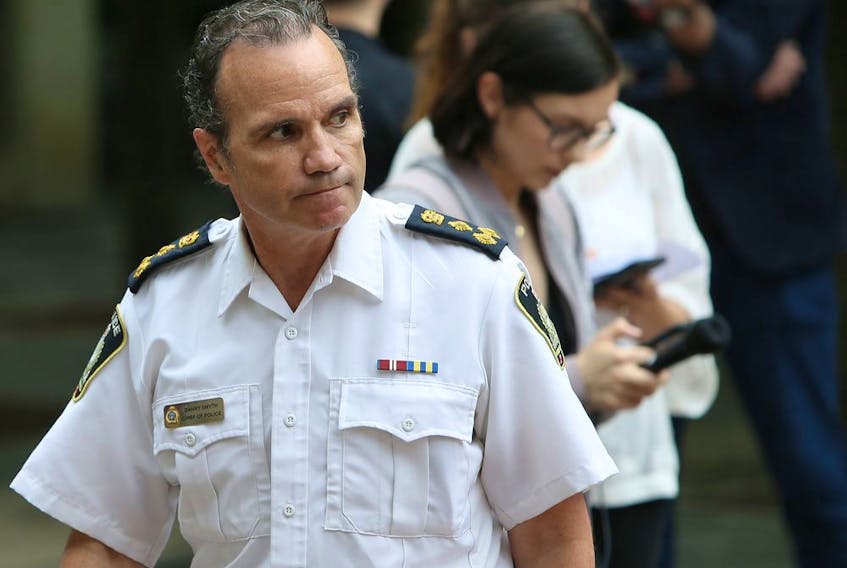Winnipeg continues its losing battle against an escalating drug epidemic.
Winnipeg Police Chief Danny Smyth told the Winnipeg Police Board (WPB) on Thursday that COVID-19 has cut-off some of the street drug supply, with paradoxically negative results. Interprovincial travel has been curtailed, Smyth said, lowering drug volumes that are normally supplied by other parts of Canada.
“On the surface that might seem like a good thing,” he said. “With less supply, the cost went up. Now, we are starting to experience what some of the medical experts call poly-substance abuse, where multiple drugs are being used at the same time. So a couple of things that we’re experiencing through the spring and summer was a prevalence toward heroin and opioids. We are also seeing opioids being introduced into the methamphetamine supply.”
Smyth said the number of overdose events has risen, adding the Winnipeg Fire Paramedic Service administered Naloxone 550 times so far this year.
“That’s more than double what we administered in all of 2019,” he said.
The police have dealt with 45 overdoes events, and 18 overdose deaths in the first six months of 2020 – comparable to all of 2019 when 39 overdose events occurred.
“So, we are seeing a substantive spike,” Smyth said. “I’ve said it many times before that I look at the drug crisis that we’re experiencing as a health issue. I still stand by that. So you wonder, why are we experiencing some of these things? Simply put, a lot of times it’s when people are in crisis. They either call us, or we happen to be out in the field already and come to their assistance.”
While Smyth acknowledges the work of “social justice activism” he said there are many negative things that result from its well-intentioned deployment in the city.
“I’ve always been open to partnerships and tried to build relationships,” he said. “But I’m finding it more challenging now, because there are many groups that are not interested in it at all. They’re interested in abolition (of the police).”
Twitter @JamesWestgateSn
Copyright Postmedia Network Inc., 2020









